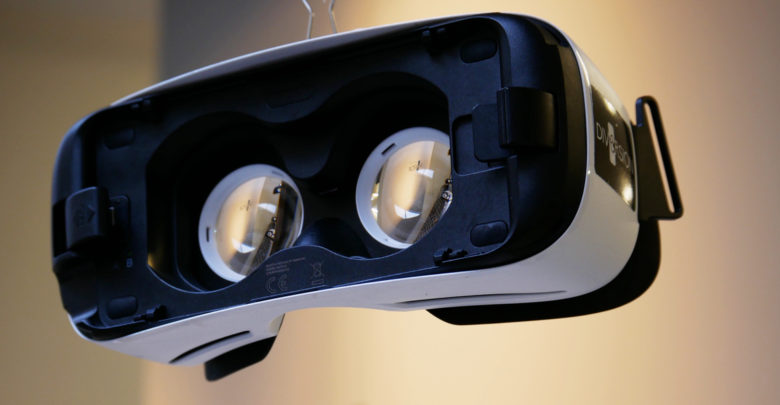 Supplied
SuppliedWhen you think of VR games, medicine probably isn’t the first thing that comes to mind. But the University of Alberta’s department of ophthalmology and visual sciences is using VR to help others with a recently unveiled game, Through The Looking Glass. The game takes the player through a number of basic tasks, like putting objects on a shelf. As the game goes on, the player’s vision becomes distorted, mimicking disorders like glaucoma or cataracts.
The idea is to allow patients’ families to see firsthand what their loved one is going through. The creator, Karim Damji, also sees it as a way to help healthcare providers better understand their patients. As someone who’s seen her fair share of vision specialists, I think it’s vital that doctors learn to empathize with patients, and having them experience the difficulties of visual impairment is a great way to do that.
I’ve had weird visual phenomena for as long as I can remember: an ever-present static hangs over my vision. Whenever I look at a bright, featureless surface, like the sky or my laptop screen, tiny dots zip around. In many ways, I’m very lucky. My symptoms don’t really impair my day-to-day functioning, since I’ve had my entire life to get used to them. And after a number of screenings, it doesn’t appear that there’s anything seriously wrong with my eyes or brain — I just have a few visual quirks.
But the one thing that has made the biggest difference is the support of the doctors I saw. It would have been easy for my optometrists and ophthalmologists to dismiss me out of hand. All my test results have always come back clean, and I can’t prove my own subjective experiences. But they always took me seriously and treated me with respect, and that made the whole process a lot less scary than it could’ve been.
Not everyone is as fortunate. A good physician-patient relationship is critical to patients receiving quality healthcare, but sometimes doctors don’t foster this relationship as well as they should. As students progress through medical school, their communication skills tend to decline, along with their focus on holistic care and sympathy for the patient. If a doctor isn’t talking to an anxious or frustrated patient, the patient may be unable to trust their doctor, leading to a breakdown in communication on both sides. If this game can stop that dynamic before it begins, everyone will be better off.
Through The Looking Glass gives a much more interactive experience than just watching a video simulation, or reading personal accounts. It’s hard to understand what having a disability is really like until you’ve dealt with it yourself. If more doctors can empathize with people experiencing vision loss, it will make the difficulties of vision loss a little bit easier.




